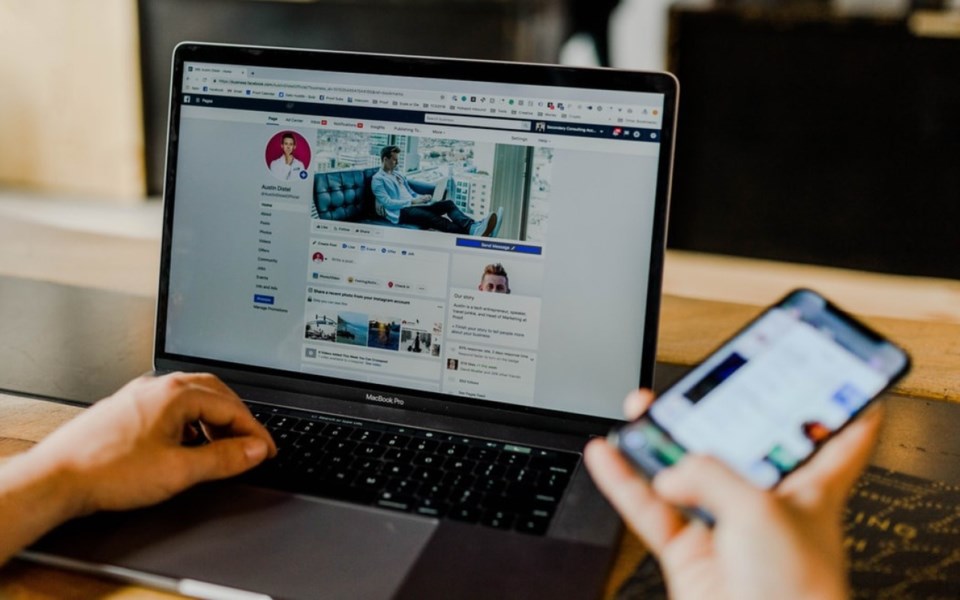Between my job as Pique's (part-time) social media reporter and the general societal pressures that accompany being a 26-year-old with an iPhone and a chronic case of FOMO, I spend a solid amount of time on the internet.
Throughout my extensive experience with the worldwide web, I've learned that while social media has the power to bless us with day-brightening content like puppy videos and memes, it has also cursed us with the phenomenon known as the "comments section." For the unfamiliar, if any of you still exist, comments sections are basically the internet's black holes—hands up if you've ever been sucked into a truly engrossing yet objectively despicable thread on the Whistler Winter group.
Luckily for me, part of my responsibilities as a social media reporter include monitoring Pique's social media feeds, including the comments left on our Facebook page.
Brief disclaimer: Not all social media comments are negative. I do think the fact that these sites facilitate a way for individuals to connect and discuss important topics should be celebrated. I'll even admit that comment threads can, at times, be enlightening, informative, thoughtful, or even downright heartwarming. But in my view, those instances are becoming fewer and farther between.
Lately, whether it's on Pique's page, in local groups or on my own news feed, I've noticed a disturbing trend that's seen the comments section morph into a modern-day rumour mill, consistently filled with fake, incorrect or unsubstantiated information.
This is particularly problematic in our current climate, where misinformation seems to be spreading just as quickly, if not faster, than this novel coronavirus scientists are still trying to fully figure out.
Companies like Facebook, Twitter and Google have said they're working to limit the amount of misinformation spread across their platforms, while the World Health Organization has stated that it's currently combating an "infodemic" alongside a very real epidemic.
Much still remains unknown about COVID-19. The death rate continues to fluctuate, as does information about how the virus is transmitted or how long it lives on surfaces. It feels like every day we're being told to react a different way, whether it's one source saying, "It's just like the flu. Chill out, wash your hands, it's fine," or another saying, "This is a dangerous and incredibly contagious virus. Be prepared for this epidemic to get much, much worse."
To that end, it's easy to see how this confusion surrounding coronavirus concerns can send people into a panic. The range of messaging is difficult enough to process, even when it's coming from seemingly reputable sources. But when it's coming from random comments attributable only to a blurry profile photo or a friend of a friend? For many, it's difficult to know who or what to believe anymore.
I've seen comments claiming that our local healthcare clinic is not testing for COVID-19 (they are), that there are confirmed cases in Whistler (currently, there are not. Vancouver Coastal Health has confirmed there are cases within the VCH region, but not here). Sometimes, these comment threads even deteriorate into name-calling and insults, or, to my amusement, conspiracy theories.
Believe it or not, this is not helpful or productive.
Unlike every keyboard warrior with a Facebook account, I can promise you that the journalists I know strive to report only factual, attributable and trustworthy information. From my experience, if there's something you're hearing around the village or in the lift line that we're not reporting, it's either because it's untrue or because we have not been able to verify the information with multiple appropriate sources.
To that end, I'd argue that social media speculation—and in some cases, the subsequent panic that prompts people to unnecessarily buy mass quantities of toilet paper, hand sanitizer and medical masks—could be significantly diminished by our health officials being completely transparent with both media outlets and the general public about the procedures and precautions in place, as well as the current risk level to our specific community.
But for now, this column is me asking as politely as possible: Please post responsibly.
Whether you're talking about COVID-19 or any other matter of public interest, don't post something publicly if you're not 100-per-cent sure that it's accurate.
Avoid spreading rumours that will only cause uncertainty or stress to your neighbours. Practice caution and common sense, but don't panic—if you have a question or a concern you think your local newspaper should be looking into, send us a message. Take responsibility for the role you play in society, and be critical of where you're getting your information. Maybe even, I don't know, consider not calling people a series of expletives on the internet.
The truth is, words are powerful. They hold merit, even when they aren't from a legitimate source.
Think about it—how many times have you incorporated the phrase, "I saw a post about..." into a conversation, without fully remembering where you saw it?




